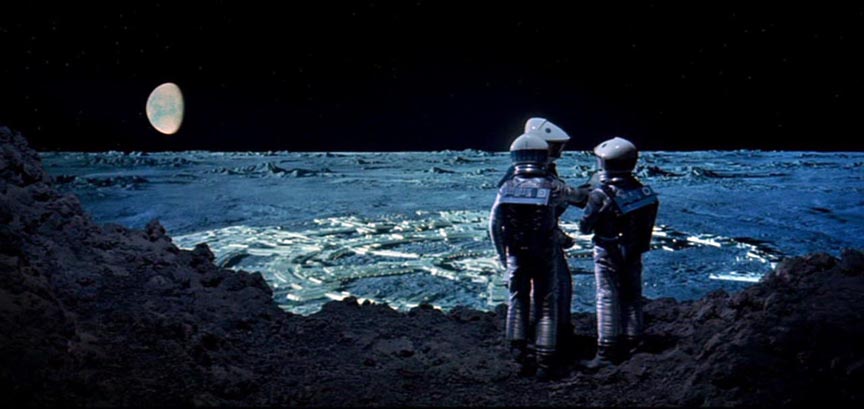Oh, it just keeps getting more and more twisted. A Daily Dish reader from Canada notes that the banned-in-the-UK (and US) “South Park” episode ridiculing Tom Cruise and Scientology, “Trapped in the Closet,” has been hastily rescheduled for showing on Canadian television, where it is now set to play Friday. Will the Forbidden Episode actually make it to Canadian screens? Andrew Sullivan wonders what this means: “Canada is now ahead of the U.S. in terms of free speech? Maybe Viacom and Tom Cruise don’t get to veto what TV viewers can watch there.”
I hope we can all agree on this one: “Blame Canada!”
And here’s why: Viacom does not own Bell Globemedia, described as “one of Canada’s largest private media companies.” Bell Globemedia just last week launched the “single-biggest multi-platform launch in the history of Canadian television” with the debut of the “MTV brand” as part of an “all-Canadian multi-platform strategy.” The way I read this is that Bell Globemedia (and CTV) are licensing the “MTV” brand (owned in the US by Viacom), and are showing programs from Viacom-owned Comedy Central (“a wholly owned division of MTV Networks“) on their own Canadian channel, The Comedy Network. In other words, Cruise and Scientology may be able to apply leverage to Viacom, but Bell Globemedia is not a Viacom company, so it is able to act independently.
A little Hollywood history that explains what’s going on: The “vertical re-integration” of media companies in the US began when the Reagan administration relaxed enforcement of anti-trust laws in the 1980s. Studios and TV networks today no longer have to abide by the free-market principles of the now unenforced Paramount Consent Decree of 1948, the Supreme Court ruling that broke up the anti-competitive studio monopolies by saying that they couldn’t own every link in the entire chain of production through distribution and exhibition — whether that meant movies in theaters or shows on radio and TV.
Because the Paramount Consent Decree is no longer in effect, someone like, say, Tom Cruise — or a company like Scientology — can today bring pressure on one division of a corporation (say, Paramount Pictures) and prevent something from being shown on TV in another division (say, Comedy Central) of the same corporation (say, Viacom). If Paramount and Comedy Central were independently owned, and in competition for talent, this sort of thing wouldn’t be so likely to happen.
So, Cruise and/or the Scientologists have five days to force or threaten the independent Bell Globemedia to cave in. Will they succeed? Stay tuned…
BTW, Andrew Sullivan also has a brilliant essay in the Sunday Times (London) on the subject of cartoon censorship, for those who don’t understand why a vulgar, offensive TV toon matters, here: “Hey Chef, these guys are killing free speech.” Here’s what he would call the (rather extensive) “money quote(s)” — I’d like to just quote the whole thing:
This is, of course, a trivial story in many ways. “South Park” is preternaturally puerile (though it remains one of the most inspired pieces of sane lunacy out there). There are wars going on. Who cares if one silly episode of a silly series gets pulled?
Well: count me as one who does care. In the mansion of free speech cartoons have an honourable room. You can say things in cartoon form that you could never put into words or enact with real live human beings….
[…]
In the sublime “South Park” movie Saddam Hussein has a gay love affair with Satan. Cartoons and puppetry, as the classic series “Spitting Image” proved, can convey truths and explore fantasies no other form can.
We need those truths and benefit from those fantasies. A free society survives partly because the powerful are mocked, and their pretensions undermined. Religions, which guard their own illusions carefully, are particularly ripe for satire. And they should be.
[…]
Orwell once remarked that one reason fascism never took off in Britain was because the sight of a goose-stepping soldier would prompt your average Englishman to giggle. Someone is now silencing the giggles. And our world is a lot creepier because of it.
As Exhibit A in support of that last paragraph, I submit the evidence of John Cleese and the Ministry of Silly Walks.
MEANWHILE, a spokesperson for Scientologist Issac Hayes (“Hustle and Flow,” “South Park: Bigger, Longer and Uncut“) denies reports by Fox411’s Roger Friedman last week that Hayes has been recovering from a stroke, and that he didn’t really issue the statement in which he said he was quitting “South Park” because it had lampooned Scientology. Friedman said a Scientologist “minder” was making statements on Hayes’ behalf.
For whatever reason, Hayes still hasn’t spoken for himself. Amy Harnell, described as a spokesman with Issac Hayes Entertainment, said of Friedman’s stories: “That’s a false report.” She also said that Hayes was not hospitalized for a stroke but for high blood pressure, and that he was doing fine, preparing for the arrival of a new baby he has fathered, and ready to move along with his career.
Friedman was definitely right about one thing, though. Statements are being made on behalf of Hayes by Scientologists — like Amy Harnell. In a Google cached story from The Bronx Times in 2004, she is described as “Amy Harnell of the Church of Scientology Artists Administration.” (There appears to be a picture of her at HarlemLIVE here. The photo is juxtaposed with a paragraph that mentions her, but the photo itself is not captioned at all.)
I look forward to the time when Hayes is feeling strong enough to speak for himself and help clear up his role in this whole thing.











